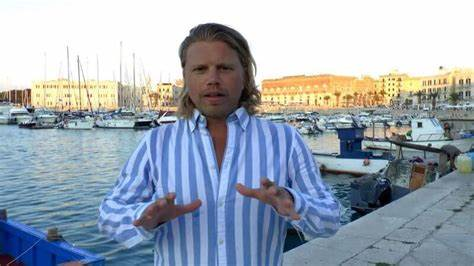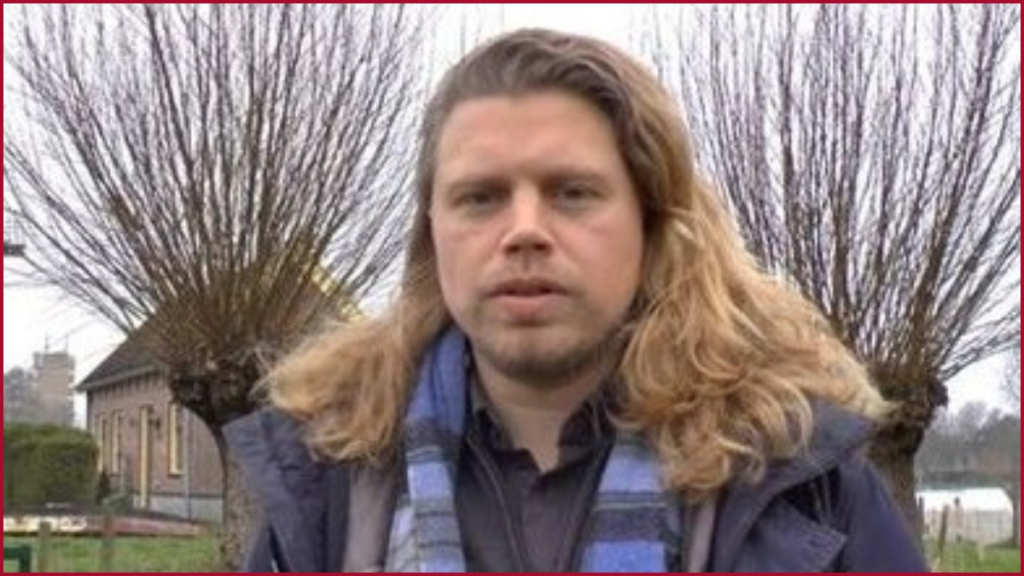The name Jonathan Jacob Meijer has recently become synonymous with a complex ethical and societal dilemma. This Dutch man, once an anonymous sperm donor, has found himself at the center of a global conversation after it was revealed that he might have fathered hundreds, possibly even thousands, of children. His story has sparked debates about the ethics of sperm donation, the rights of donor-conceived children, and the role of the media in shaping public opinion.

The Man Behind the Headlines
Born in 1981, Jonathan Jacob Meijer is a relatively private individual who, until recently, lived a quiet life. Not much is publicly known about his early life or upbringing, beyond the fact that he comes from a large family with seven siblings. This experience, he has mentioned in interviews, might have influenced his desire to help others start families.
Meijer’s public persona is largely shaped by his involvement in the sperm donor world. He has been open about his decision to donate sperm, seeing it as a way to contribute to society. However, the scale of his donations, which has only recently come to light, has transformed him from a relatively unknown donor to a global figure.
The Unprecedented Scale of Donation
The revelation that Meijer might have fathered hundreds, if not thousands, of children is unprecedented. It has raised serious questions about the sperm donation industry and the regulations governing it. While many sperm banks have limits on the number of families that can be conceived from a single donor, these regulations appear to have been circumvented in Meijer’s case.
The exact number of Meijer’s children is still uncertain. Estimates range from 500 to 1,000. These figures are based on information gathered from various sources, including sperm banks, donor-conceived individuals, and media reports. The true number may never be definitively known.
Ethical and Societal Implications
The case of Jonathan Jacob Meijer has brought into sharp focus the ethical complexities surrounding sperm donation. Questions have been raised about the rights of donor-conceived children, the responsibilities of sperm donors, and the role of sperm banks in regulating the process.
One of the primary concerns is the potential for genetic relatedness among Meijer’s children. With such a large number of offspring, the risk of accidental incest is significantly increased. This has led to calls for better tracking systems and genetic counseling for donor-conceived individuals.
Additionally, the case has sparked a broader conversation about the commercialization of reproduction. Some critics argue that sperm donation has become an industry focused on profit rather than the well-being of children. They call for stricter regulations and greater transparency in the sperm donation process.
The Media’s Role
The media has played a significant role in shaping public perception of Jonathan Jacob Meijer and the issues surrounding sperm donation. The Netflix documentary, “The Man with 1,000 Kids,” has brought the story to a global audience, sparking intense debate and scrutiny.
While the media has undoubtedly increased awareness of the issue, some critics argue that it has also sensationalized the story and exploited the vulnerabilities of those involved. Concerns have been raised about the privacy rights of donor-conceived individuals and the potential harm caused by public exposure.
Meijer’s Response
In the face of intense public scrutiny, Jonathan Jacob Meijer has offered his own perspective on the situation. He has defended his actions, claiming that he intended to help people build families. He has also expressed concern about the potential consequences for his children and has called for a more nuanced understanding of the issue.
Meijer has declined to participate in the Netflix documentary, arguing that it presents a one-sided and inaccurate portrayal of his life. He has also criticized the media for focusing on sensationalism rather than substance.
The Future of Sperm Donation
The case of Jonathan Jacob Meijer is likely to have a lasting impact on the sperm donation industry. It has prompted calls for stricter regulations, increased transparency, and better support for donor-conceived individuals.
As technology continues to advance, new challenges and opportunities are emerging in the field of assisted reproduction. The development of genetic editing and artificial intelligence raises ethical questions about the future of human reproduction.
It is essential to engage in ongoing dialogue about the ethical, legal, and social implications of these developments. By fostering open and inclusive conversations, we can work towards a future where assisted reproduction is used responsibly and ethically.
The story of Jonathan Jacob Meijer is a complex and multifaceted one. It has exposed the challenges and contradictions inherent in the sperm donation industry and raised important questions about the rights and responsibilities of all parties involved.

FAQ’S
Who is Jonathan Jacob Meijer?
Jonathan Jacob Meijer is a Dutch man who became the center of a massive controversy due to his prolific sperm donation. He is estimated to have fathered hundreds, possibly even thousands, of children worldwide. His actions have sparked debates about ethics, parental rights, and the regulation of sperm donation.
How many children does Jonathan Jacob Meijer have?
While the exact number is unknown, estimates suggest that Jonathan Jacob Meijer could have fathered anywhere between 500 and 1,000 children. This makes him one of the most prolific sperm donors in history.
Why did Jonathan Jacob Meijer donate sperm so much?
Meijer has stated that he wanted to help couples who struggled to have children. He found fulfillment in assisting others to build families. However, his actions have raised concerns about the potential psychological and genetic implications for the large number of children he has fathered.
Is it legal to donate sperm so much?
The legality of sperm donation varies widely between countries. While many countries have regulations in place to limit the number of children a donor can father, it seems that these laws were not strictly enforced in Meijer’s case. His actions have highlighted the need for stricter regulations in the sperm donation industry.
What are the potential consequences of having so many half-siblings?
Having a large number of half-siblings can lead to complex family dynamics and potential genetic issues. There’s a risk of increased genetic disorders due to close genetic relationships. Additionally, there are concerns about the emotional and psychological impact on the children involved.
What has been the public reaction to Jonathan Jacob Meijer’s story?
The public reaction to Meijer’s story has been mixed. Some people sympathize with his desire to help others, while others are critical of his actions and the potential consequences for the children involved. The story has sparked important conversations about the ethics of sperm donation and the need for stricter regulations.
What legal actions have been taken against Jonathan Jacob Meijer?
In April 2023, a Dutch court ordered Meijer to stop donating sperm and imposed a hefty fine for any future violations. The court also instructed sperm banks to destroy his stored semen, except for samples needed by existing families. These actions aim to prevent the birth of more children fathered by Meijer.
What is the Netflix documentary “The Man with 1000 Kids” about?
The Netflix documentary explores the life and actions of Jonathan Jacob Meijer. It delves into the stories of some of the children he fathered, as well as the impact his actions have had on their lives and the lives of their parents. The documentary aims to raise awareness about the issues surrounding sperm donation and the potential consequences of unregulated practices.
How has Jonathan Jacob Meijer responded to the criticism?
Meijer has defended his actions, claiming that he was unaware of the potential consequences and that he acted with good intentions. He has expressed regret for the situation but maintains that he did not intend to harm anyone.
What are the implications of this story for the sperm donation industry?
The story of Jonathan Jacob Meijer has highlighted the need for stricter regulations in the sperm donation industry. It has prompted discussions about limiting the number of children a donor can father, conducting thorough psychological evaluations of donors, and providing adequate counseling and support to donor-conceived individuals.
To read more, Click here